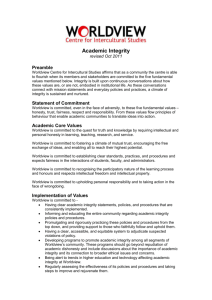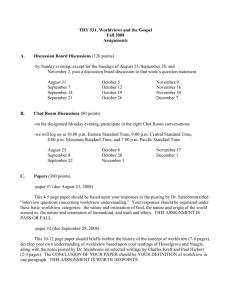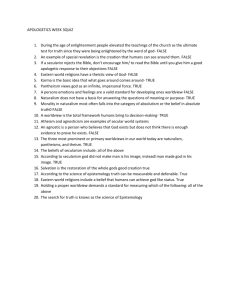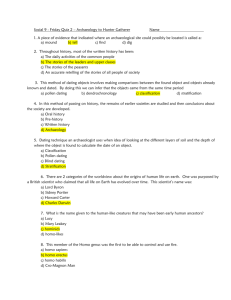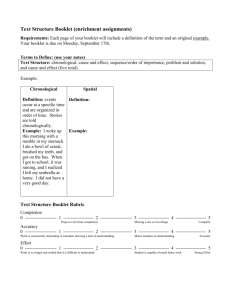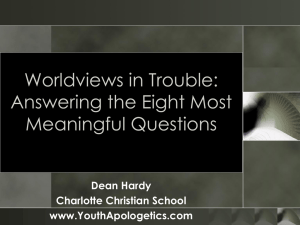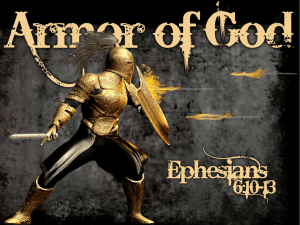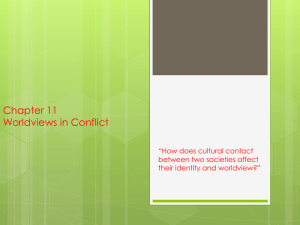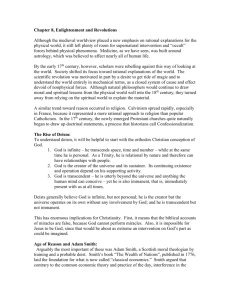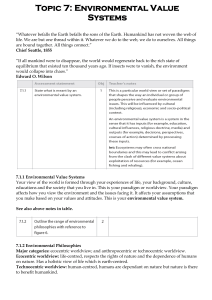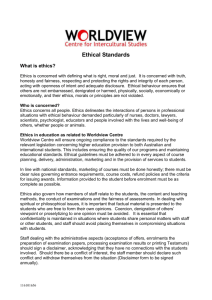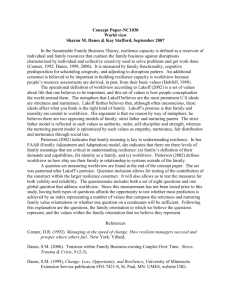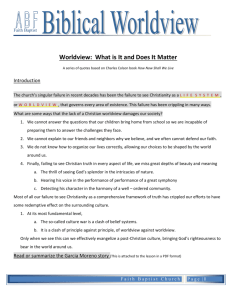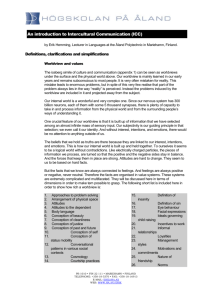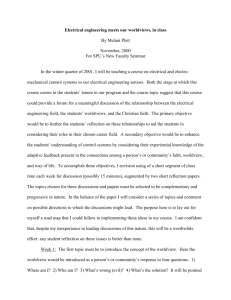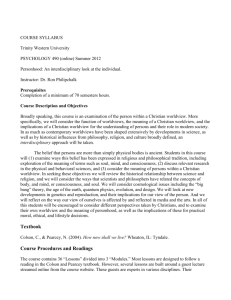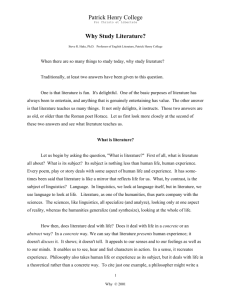Leader`s Guide-Word
advertisement
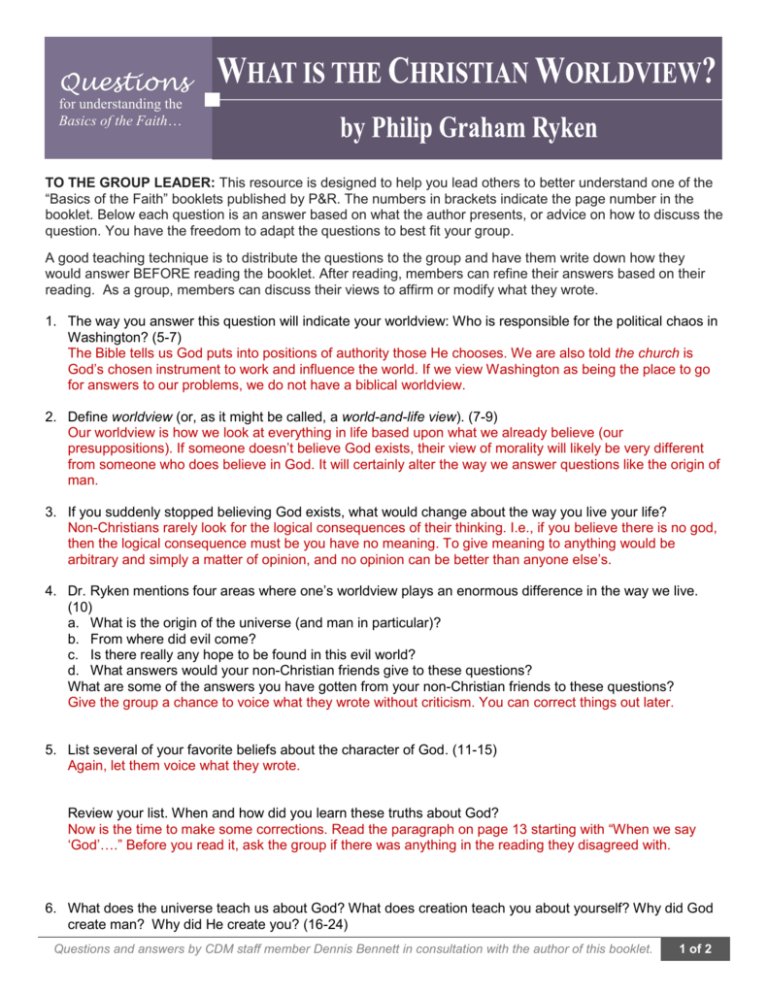
Questions for understanding the Basics of the Faith… TO THE GROUP LEADER: This resource is designed to help you lead others to better understand one of the “Basics of the Faith” booklets published by P&R. The numbers in brackets indicate the page number in the booklet. Below each question is an answer based on what the author presents, or advice on how to discuss the question. You have the freedom to adapt the questions to best fit your group. A good teaching technique is to distribute the questions to the group and have them write down how they would answer BEFORE reading the booklet. After reading, members can refine their answers based on their reading. As a group, members can discuss their views to affirm or modify what they wrote. 1. The way you answer this question will indicate your worldview: Who is responsible for the political chaos in Washington? (5-7) The Bible tells us God puts into positions of authority those He chooses. We are also told the church is God’s chosen instrument to work and influence the world. If we view Washington as being the place to go for answers to our problems, we do not have a biblical worldview. 2. Define worldview (or, as it might be called, a world-and-life view). (7-9) Our worldview is how we look at everything in life based upon what we already believe (our presuppositions). If someone doesn’t believe God exists, their view of morality will likely be very different from someone who does believe in God. It will certainly alter the way we answer questions like the origin of man. 3. If you suddenly stopped believing God exists, what would change about the way you live your life? Non-Christians rarely look for the logical consequences of their thinking. I.e., if you believe there is no god, then the logical consequence must be you have no meaning. To give meaning to anything would be arbitrary and simply a matter of opinion, and no opinion can be better than anyone else’s. 4. Dr. Ryken mentions four areas where one’s worldview plays an enormous difference in the way we live. (10) a. What is the origin of the universe (and man in particular)? b. From where did evil come? c. Is there really any hope to be found in this evil world? d. What answers would your non-Christian friends give to these questions? What are some of the answers you have gotten from your non-Christian friends to these questions? Give the group a chance to voice what they wrote without criticism. You can correct things out later. 5. List several of your favorite beliefs about the character of God. (11-15) Again, let them voice what they wrote. Review your list. When and how did you learn these truths about God? Now is the time to make some corrections. Read the paragraph on page 13 starting with “When we say ‘God’….” Before you read it, ask the group if there was anything in the reading they disagreed with. 6. What does the universe teach us about God? What does creation teach you about yourself? Why did God create man? Why did He create you? (16-24) Questions and answers by CDM staff member Dennis Bennett in consultation with the author of this booklet. 1 of 2 This section gives many good answers to this question. Mark in your book some of the ones you want to emphasize to the class. Keep before the group the truth that God does all things for His own glory. He, therefore, created us for His glory and for us to enjoy Him forever. 7. List some ways the world would be different if sin had not entered our existence. (24-31) You can take each of the paragraphs in this section and reverse them to see the answer. Check off each paragraph that is brought up by the group and then briefly cover the others. 8. Read 2 Corinthians 5:16-21. You have been reconciled to God through Christ. Now He has given you a ministry – reconciling the world back to Him. Go back over your list from question 7. How can we reconcile each of these fallen areas of creation back to Him? (31-39) Keeping in mind our reconciliation is not yet completed, take the group back through anything on the list in the last section they may have left out, adding special items you find important which Ryken adds in this section. 9. Reconciliation began when we came to Christ, but it is not yet complete. Look back at your list in question 7; what jobs will no longer be needed when the Holy Spirit’s work of full reconciliation is complete in the New Heaven and the New Earth? Which jobs will still be needed? (39-45) Jobs no longer in existence Police Lawyers Jobs still needed in the New Earth Carpenters Farmers After going through these questions, read the text and fill in the answers in preparation for class, noting other questions you might have. [By the way, if you do have any other questions about what you read, write them down here so you remember them at class time.] APPLICATION There are only two earthly things that will last forever – people and the Word of God. What do you need to change in your daily life to make these two things priorities? Remember, work done in the flesh and not for God will be burned up. They may have meaning here, but the priority should be those things done to glorify God. For Further Study Christian Worldview: A Student’s Guide, Philip Ryken. Crossway, 2014. Truth in All Its Glory: Commending the Reformed Faith, William Edgar. P&R Publishing, 2004. Find this and more at www.pcabookstore.com. Questions and answers by CDM staff member Dennis Bennett in consultation with the author of this booklet. 2 of 2

